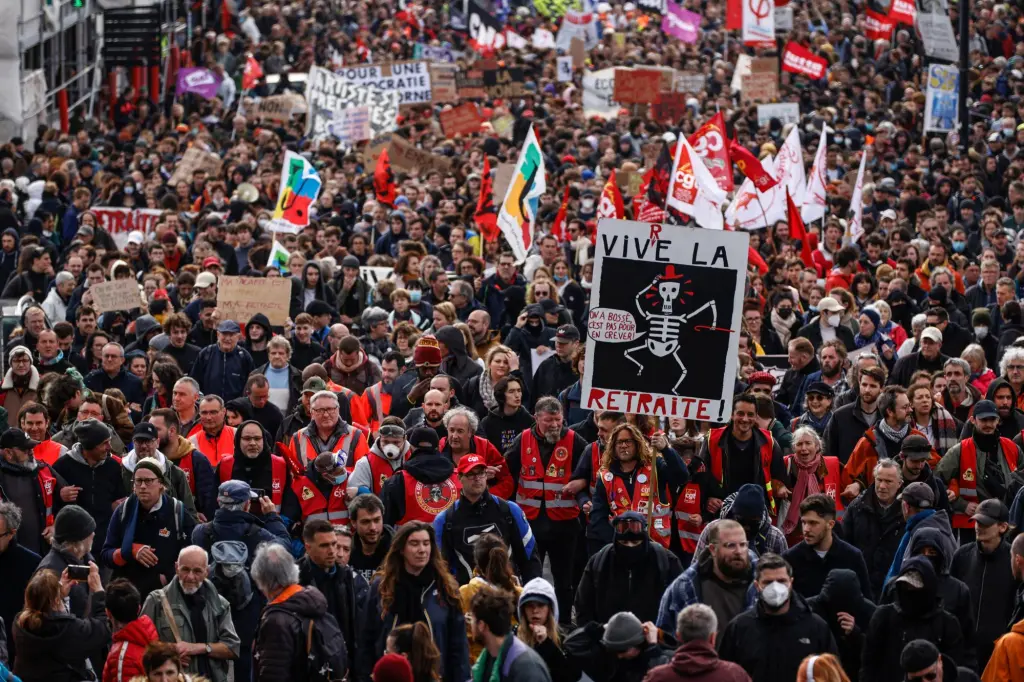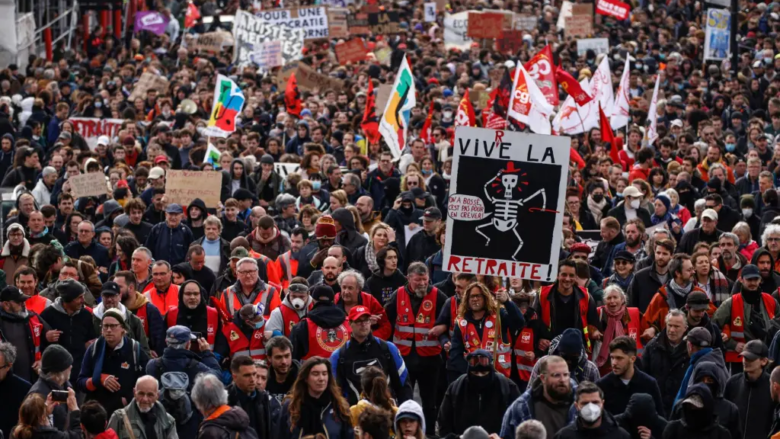France is primarily well known for bread, wine, cigarettes, Edith Piaf, and hating their government with great vigor. I’m actually not sure. I’ve never been, but I know that last one is currently true.
France’s government is currently attempting to raise the retirement age from 62 to 64. Though 64 may seem like a fine retirement age, it’s actually a conservative estimate for the average person. Your average French person must work for 43 years before they get a pension, meaning only those who start working at 18 can actually retire when they reach 62. This excludes many people from being able to retire at an appropriate age. For example, women often leave their jobs to raise children, cutting the years of work which would otherwise contribute to their retirement.
The reforms (and subsequent demonstrations) have been going on since January 19th but reached a particular boiling point on March 16th, when Macron’s government invoked article 49.3 of the constitution. The article allowed the reform to bypass a parliamentary vote just minutes before the vote was scheduled. This move was denounced by politicians across the political spectrum, prompting two no-confidence motions to be filed.
When article 49.3 is invoked, lawmakers have 24 hours to file a no-confidence motion. A no-confidence vote is essentially a vote taken on whether the members of government are fit to hold their positions. It requires an absolute majority vote of parliament to pass (287 out of 573) and would mean that the prime minister and entire cabinet of the current government would have to be reappointed. A successful no-confidence vote would also kill the reform bill.
Unfortunately, both motions failed, with the first motion short just nine votes of passing. The vote nonetheless demonstrates the lack of confidence in the prime minister and government, and protesters are not happy about the lack of democratic ethics in their democratically elected government.
Accordingly, protests — and police brutality —have intensified. Nationwide protests were already reaching participation numbers in the millions. As of March 6th, a trash collection strike has affected Paris, Rennes, and Le Havre. Hundreds of cases of arson have been documented in Paris, in part due to the abundance of trash readily available. In Lyon, on the 17th, hundreds of people stormed administrative offices and called for President Macron to resign. On the 23rd, the town hall of Bordeaux was set on fire. The Education Ministry stated that a quarter of elementary and middle school teachers were striking, along with 15% of high school teachers and a significant number of exam supervisors, leaving half a million students unable to complete their baccalauréat exams. The entrance to the Paris-Panthéon-Assas University was barricaded. Approximately 30% of flights at Paris Orly Airport were cancelled, and only two of the 14 Paris metro lines were operating normally. Even natural gas production was reduced to a minimum as a result of strikes and blockades.
What I have named above is just a quick look at the degree of widespread direct action taken in response to the overtly non-democratic strategy employed to pass a controversial bill. What is striking is that only about 9% of France’s working population is part of a union, but public opinion is so in line with union goals that such widespread solidarity is possible—quite distinctive from the American tendency.
It is worth noting that, though a national strike is difficult to imagine in today’s American political climate, the 2020 George Floyd protests reached similar levels of participation. It is equally worth noting, however, that the degree of support shown from the general American populace for the French nationwide protests is seemingly more unconditional. The French have made effigies of Macron, chanted, “We decapitated Louis XIV, we can decapitate you too”, and readily burned trash and town halls, and the response of the general American public has been an almost loving recognition of French history. Was this same measure of support shown for the majority Black protesters? Would this same measure of support be shown for Ecuadorian indigenous- organized national strikes? Was there this recognition earlier this year for Peru’s rejection of a non-democratically elected president? Why is this support seemingly more unconditional?


